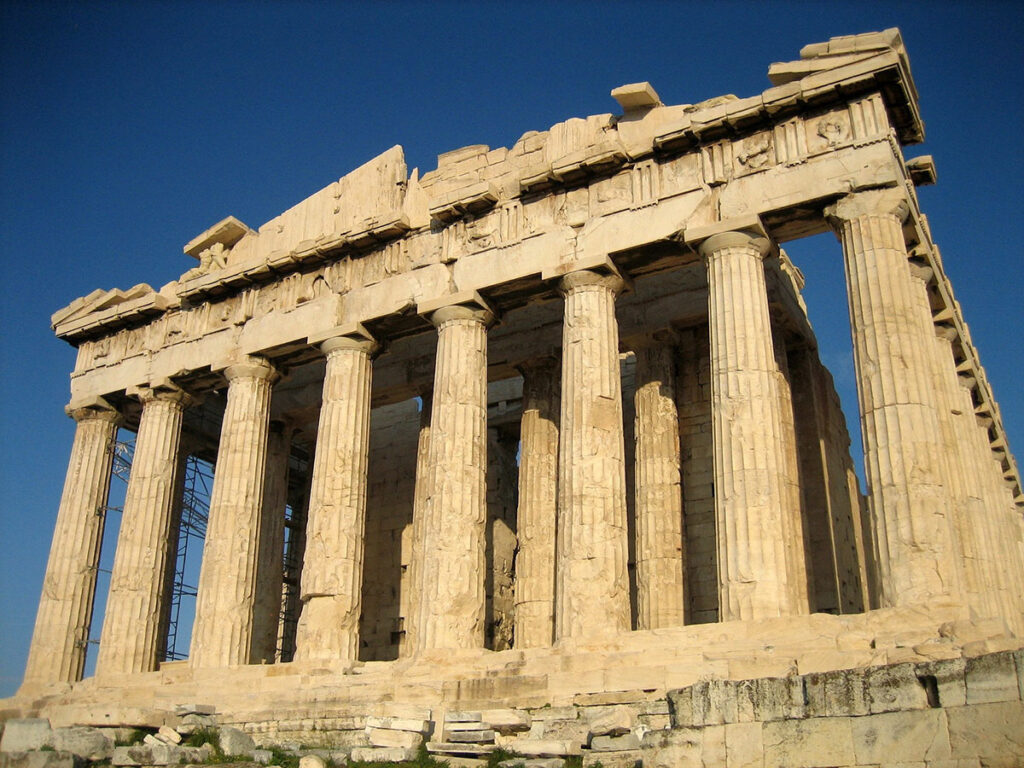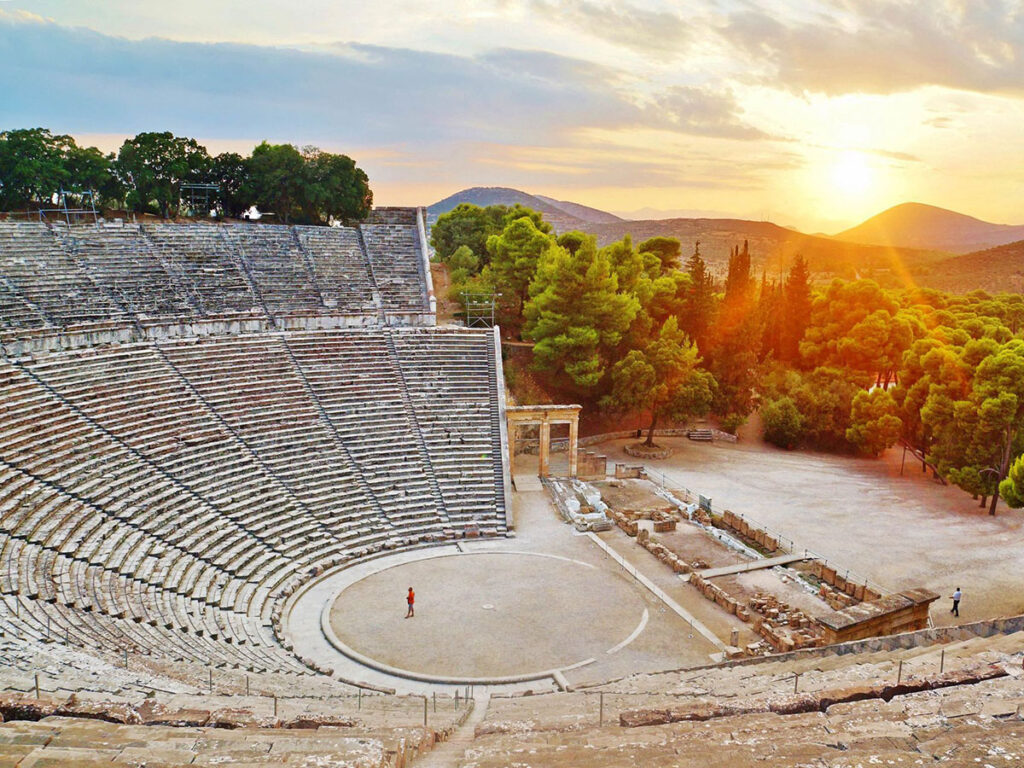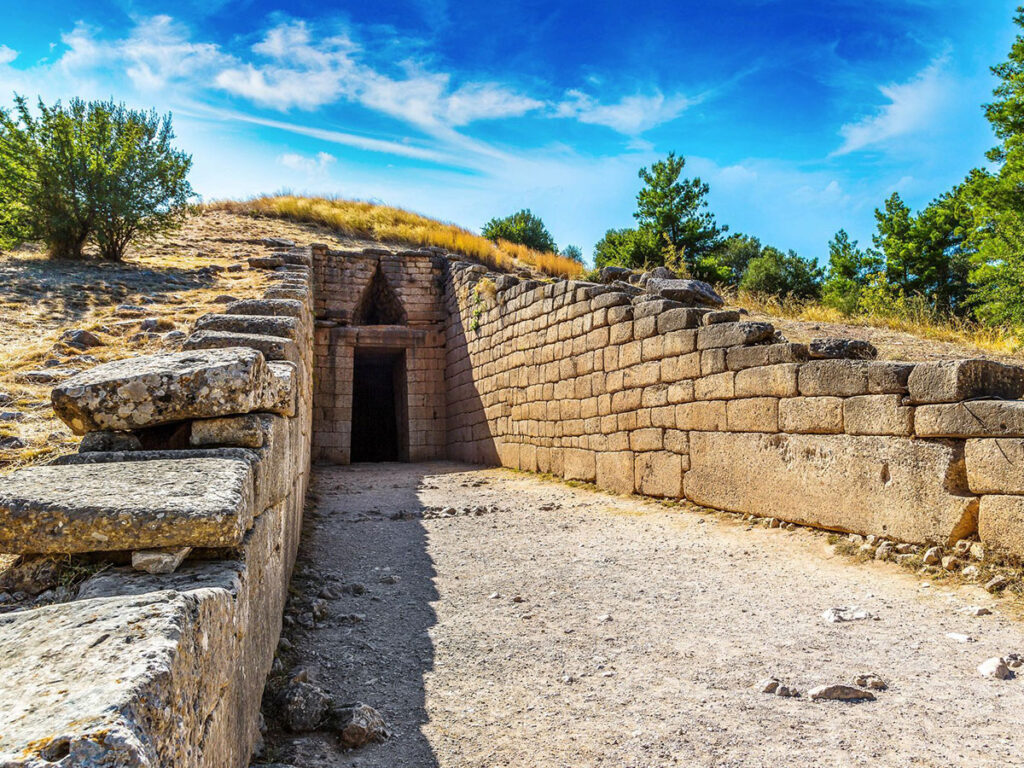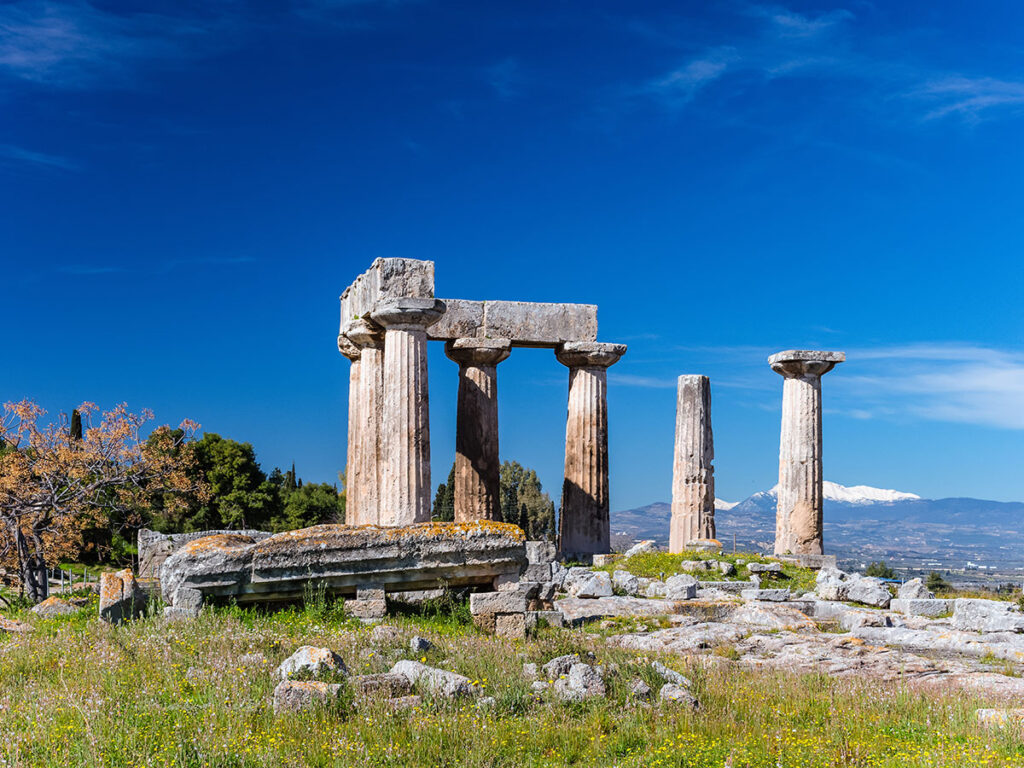Heritage & Culture
Discover the most iconic sites of the ancient Greek civilization, feel its magnificence, experience the inconceivable energy of a world that left its mark on humanity

ATHENS
An ancient city with a modern soul
Athens is a very walkable city egging to be explored on foot. With so many cultural sites within easy reach of each other, just walking around is like visiting an open-air museum. So, before you start ticking off that bucket list, allow Athens to introduce itself to you. No one forgets their first glimpse of the Acropolis, standing guard over the city as it has done for thousands of years and a perfect landmark around which to explore.
Around the Acropolis, the archaeological walk allows the visitor to imagine the bustling ancient market, Socrates and his students, the atmosphere of the ancient city that left its mark on humanity.
It is definitely worth a visit to the Acropolis Museum and the Archaeological Museum, but also to venues of modern culture such as the National Gallery, the Benaki Museum, the Stavros Niarchos Cultural Foundation.
The historical districts of modern Greece such as Plaka and Monastiraki as well as the modern neighborhoods such as Psiri and Koukaki, where you can also experience good food and nightlife.
Wandering through the bustling center also reveals the unexpected green spaces of Athens, such as the National Garden (just behind the Hellenic Parliament) and the hills of Philopappou and Lycabettus, from where you can enjoy the skyline of one of Europe’s quirkiest cities.
Acropolis Museum: www.theacropolismuseum.gr
ANCIENT THEATRE OF EPIDAURUS
One of the most important theatres in the world
Epidaurus, was a small city in Ancient Greece, located on the Argolic Peninsula at the Saronic Gulf in the Peloponnese. Today, the area is divided into Palaia (also referred to asArchea) &NeaEpidavros. Epidavros, is very famous for its huge outdoor ancient theatre, this monumental construction admired for its beauty, symmetry & acoustics which permit almost perfect intelligibility of unamplified spoken words to all 14,000 spectators regardless of their seating. Famously, tour guides have their groups scattered in the stands and show them how they can easily hear the sound of a match struck at center-stage.
Some of the greatest contemporary actors and famous opera singers have performed in Epidaurus. The stage of this theatre is in itself a symbol of status and recognition for the people of Art.
Epidaurus Festival info : www.aefestival.gr
Museum – Info Tel.: +30 2753(0) 22009


MYCENAE
A journey to the mythical bronze age
Welcome to the most important – and lavish – palatial center of the Late Bronze Age in Greece, Homer’s “gold-rich Mycenae”. According to the mythology, the founder of Ancient Mycenae was Perseus, son of Zeus and Danae. The myth of the Cyclops and the story of Heinrich Schliemann’s discovery of the so-called Mask of Agamemnon are fascinating, as is a tour of the archaeological site
Mycenae is an important archaeological site in Greece which was once the city at the center of the Mycenaean civilization of between 1600BC and 1100BC. At its peak, Mycenae was one of the most important Ancient Greek cities and is linked to several works of cultural significance, including the Odyssey and the Iliad
Museum – Info:+30 2751(0) 76585 /76802
ANCIENT CORINTH
The important, wealthy city of antiquity
Corinth was a city-state (polis) on the Isthmus of Corinth, the narrow stretch of land that joins the Peloponnese to the mainland of Greece. Ancient Corinth was one of the largest and most important cities of Greece, with a population of 90,000 in 400 BC. The Romans demolished Corinth in 146 BC, built a new city in its place in 44 BC, and later made it the provincial capital of Greece. The modern city of Corinth is located approximately 5 kilometres (3.1 miles) northeast of the ancient ruins. It was established following the destruction of the village surrounding the ruins of Ancient Corinth, by an earthquake. Since 1896, systematic archaeological investigations of the Corinth Excavations by the American School of Classical Studies at Athens have revealed large parts of the ancient city, and recent excavations conducted by the Greek Ministry of Culture have brought to light important new facets of antiquity.
Museum – Info Tel.: +30 2741(0) 31207




